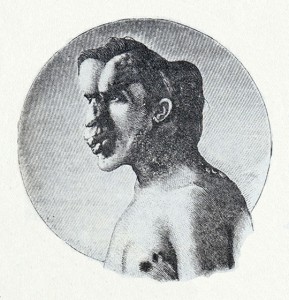John Titor: Time Traveler or Hoaxster Extraordinaire?
If there’s one urban legend we love, it’s the mystery of John Titor. The thing about time travel is that those who claim to have experienced it have a built in device that ensures they cannot be proven wrong — that is, they often claim that there are many future realities and their’s may not line up with ours. So, when John Titor made his claims, most of the Internet took them with a grain of salt — but the thing is, some of those claims have turned out to be close to the truth (some not so much), and the most fearsome claim of all, a devastating WWIII scenario, is yet to unfold — the events were said to occur in 2015.
The question remains, who is John Titor? The perpetrator of a clever internet hoax, or a man from the future with a message and a mission to save our world? Whoever he was, in the year 2000 he signed on to the net and described in various detail a dystopian future that grabbed our imagination and still has not let go…

The Mystery of John Titor: Hoax or Time Traveler?
By Rick Paulas (PSMag)
“A person named “John Titor” started posting on the Internet one day, claiming to be from the future and predicting the end of the world. Then he suddenly disappeared, never to be heard from again.
This is our planet’s bleak future: a second Civil War splinters America into five factions, leaving the new capital based in Omaha. World War III breaks out in 2015, starting with Russia and the U.S. trading nukes and ending with three billion dead. Then, to top it all off, a computer bug delivers where Y2K sputtered, destroying our world as we know it. That is, unless an audacious time traveler successfully traverses the space-time continuum to change the course of future history.
In late 2000, that person signed onto the Internet…”
For the complete piece click here. For more on Titor click the links below.
All things John Titor discussed on Art Bell, here.
List of his predictions about 2015, here.
John Titor’s actual posts archived here, and here at the John Titor Foundation website.
Much more here.
An interview with the man who claims to be John Titor’s present-time mother’s attorney here.
Share


